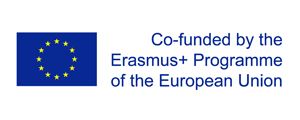The Political Geography of the Eurocrisis
Pablo Beramendi
Department of Political Science, Duke University
Le 2 novembre 2017 – 16 h 15 à 17 h 25
Leacock 429, McGill University
Coparrainé par le Centre for the Study of Democratic Citizenship.
ABSTRACT
Contrary to the expectations from currency unions theory and historical precedent, the euro area has failed to integrate fiscally in response to the crisis. At the same time, however, significant horizontal transfers towards financial stabilization have taken place. What explains this co-existence of persistent reluctance by domestic leaders in core EU countries to pursue fiscal integration and large scale financial transfers between nations within the union? We analyze responses to the crisis as a result of the geography of income and production. Heterogeneity of constituencies’ redistribution preferences associated with a diverse economic geography accounts for the political constraints on national governments keeping them from furthering fiscal integration. In turn, cross-unit externalities in the form of potential financial risks shift the preferences of citizens potentially exposed to negative side-effects and open up the possibility of efforts towards international redistribution.











